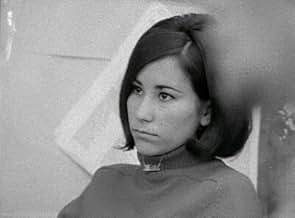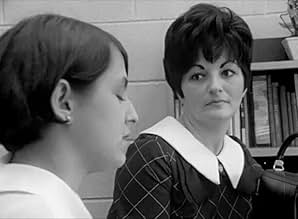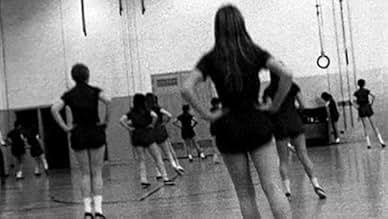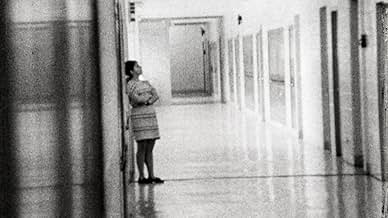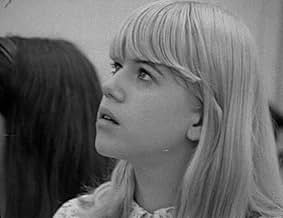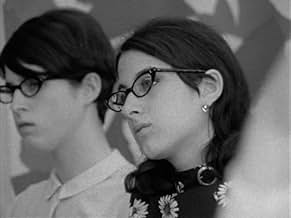Le documentariste Frederick Wiseman nous emmène à l'intérieur de Northeast High School comme une mouche sur le mur pour observer les enseignants et comment ils interagissent avec les élèves.Le documentariste Frederick Wiseman nous emmène à l'intérieur de Northeast High School comme une mouche sur le mur pour observer les enseignants et comment ils interagissent avec les élèves.Le documentariste Frederick Wiseman nous emmène à l'intérieur de Northeast High School comme une mouche sur le mur pour observer les enseignants et comment ils interagissent avec les élèves.
- Réalisation
- Récompenses
- 1 victoire au total
Avis à la une
Wiseman has stated that with "Titticut Follies" and his next film, "High School", he had more of a fixed idea of what he was trying to go for (as opposed to his later, more thematically ambiguous films). But even so, that does not mean that the individual member of the audience cannot get what he or she wants out of what has just been seen. In a 1998 interview with "The Boston Pheonix", Wiseman stated: "When [High School] was first shown in Boston, in 1969, one of the people who saw it was a very conservative member of the Boston School Committee. I thought she'd hate the movie. But she came up and said, 'Mr. Wiseman, that was a wonderful high school!' I thought she was kidding me until I realized she was on the other side from me on all the value questions. Everything I thought I was parodying, she thought was great. I don't think her reaction represents a failure of the film. Instead, we have an illustration that reality is ambiguous, a complex mirror that the 'real' film takes place where the mind of the viewer meets the screen. It's how the viewer interprets the events."
In the above case, it would seem that the film is only unfair if you dislike what you see. The woman disagreed with what Wiseman was saying, but she still liked the film, because she felt that the images were strong enough to counter what Wiseman's intentions for the film were. So then does it really matter if he was "parodying" his subjects?
Of course we could look deeper into a film like "High School", at more minute details, to see better, less broad examples of what could be considered unethical practices. In one scene, a teacher teaches a class and we see a close-up of her face, wearing thick, horn-rimmed glasses. About this shot, Calvin Pryluck writes, "One can wonder how the teacher in High School feels about herself since seeing herself seeing her bottle-thick eyeglass lenses larger than life on the screen." Small matters like this are important. But is the woman's appearance Wiseman's problem? Perhaps he chose the close up to emphasize the look on her face. Perhaps then if the woman feels embarrassed, then that is for her to worry about, no one else.
There is something purely amazing in viewing such settings in this vignette as they were, undoctored by Hollywood's lens. I am fascinated by the details of a time that I will never know personally and "High School" provides a brief glimpse into the mindset of the young adults of 1969 who are not unlike ourselves.
If you dig documentaries, please give this one a shot. Maybe you'll become as obsessed with "High School" as I have.
Wiseman has directed several films that run longer than three hours, mind-numbingly intense documentaries which fiercely tear into their subject matter and are nearly completely thematically ambiguous, but "High School" is more a straightforward documentary, reminiscent in places of the sort of film the Maysles Brothers made, and of "Titicut Follies", perhaps the only other Wiseman film with a definitive approach to the subject matter. The film doesn't feature the sort of objectivity some of Wiseman's other films do, and even the sequel to this feature, "High School II", which looked at a 90's high school, is far more ambiguous and much longer than this lean 75-minute feature, but around as good.
Still, the film is not marred by simplistic messages and a preachy attitude. Wiseman's films, as they normally do, allow a remarkably candid, voyeuristic experience for the audience, letting us see some of the social attitudes of the era as well as capturing the timeless feel of the high school experience. In what is perhaps the film's greatest scene a teacher formally recites "The Dangling Conversation" by Simon and Garfunkel, then plays the song for the class. You see small mannerisms change, the teacher suddenly has a hopeful look in her eyes rather than one of a tired educator, and Wiseman brilliantly captures the class's reaction without the scene ever feeling contrived or forced. It's just the sort of scene that Wiseman does perfectly, asking the audience to interpret the images for themselves, never overstepping his boundaries and preaching to the audience.
"High School" is almost certainly Wiseman's most accessible film. At 75 minutes in length it goes by quite fast and although it isn't necessarily designed as entertainment it is more or less easy to watch except for those who had traumatic high school experiences. "High School II" is a more complex and ambitious film (and, of course, seen by far fewer people), but "High School" might have the edge in terms of just how effective and lean it is. It's a perfectly-structured documentary with a stunning final scene, and may be one of my favorite films.
10/10
Le saviez-vous
- AnecdotesThis film was selected to the National Film Registry, Library of Congress, in 1991.
- Citations
Male Authority Figure: It's nice to be individualistic, but there are certain places to be individualistic.
Female Student: I didn't mean to be individualistic.
Male Authority Figure: No, I'm not criticizing!
- ConnexionsFollowed by High School II (1994)
- Bandes originales(Sittin' On) The Dock of the Bay
(uncredited)
Written by Steve Cropper and Otis Redding
Performed by Otis Redding
Meilleurs choix
- How long is High School?Alimenté par Alexa
Détails
- Date de sortie
- Pays d’origine
- Sites officiels
- Langues
- Aussi connu sous le nom de
- Student Affairs
- Lieux de tournage
- Société de production
- Voir plus de crédits d'entreprise sur IMDbPro
- Durée
- 1h 15min(75 min)
- Couleur
- Mixage

